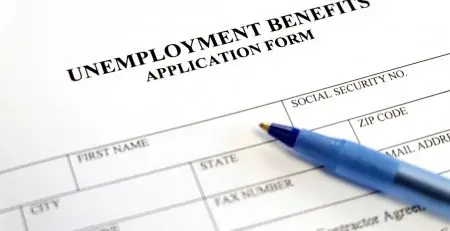What are the chances of you being in need of a house as soon as possible? Probably not so high, yet if there is even a slight possibility for this to happen, you have to be prepared.
In the light of the recent events and troubles, especially in the past 2 years, lots of people had to abandon their houses for more than one reason:
- Financial instability because of the Coronavirus consequences.
- Medical conditions.
- Domestic violence.
- Natural disasters.
- Runaways from war.
In this article, we are going to show you the most efficient emergency housing solutions.
Emergency Housing Solutions to Fit Your Budget
Just because someone needs a place to stay doesn’t necessarily mean they are broke. Maybe you are new in town, or you are staying in the neighborhood for a few days. If that is the case, but you cannot afford fancy hotels, here is what you can do:
Host Family Houses
Families are lifesavers; whether they are yours or someone else’s. Lots of families are willing to rent you a room in their house for little money. Not only are they providing you a safe, cozy place to stay, but the greatest benefit of host families is being welcoming and caring.
There are a bunch of websites that can help find a good family to stay with like Sara Homestay.
Short-Term Rentals
There are a lot of short-term rentals available, and if you’re seeking to rent for a week or a month, you can get some really good offers. To get one of these, you can try any option of the following:
- If your temporary move is related to your job and your employer does not provide accommodation, ask your employer’s point person (or HR representative, if in doubt) about temporary local housing choices. You may be able to find corporate rental housing specifically built for work-related relocations.
- This might sound stereotypical but search the internet! Hundreds of Google results are loaded with rentals, and if that (somehow) does not work, try asking people on Facebook.
- Ask your family members and friends for recommendations, especially if any of them had a relevant experience.
Emergency Housing Solutions for Low-Incomes
One wonderful solution for people who cannot afford any kind of normal housing is temporary transitional housing programs. They work as the bridge over the gap between homelessness and permanent housing. These programs were designed to help low-income families and individuals who need to reside immediately. A large variety of assistance sources provide this service, including shelters, government grants, religious organizations, non-profits, and charities.
Advantages of Transitional Housing Programs
Not only do transitional housing programs provide urgent housing for people in need, but they also offer a wide range of supportive services, such as:
- Medical care support for both mental and physical issues.
- Recovery support for people with addiction-related issues.
- Training sessions to enhance the participants’ skills and abilities.
The primary objective of transitional housing is to assist the homeless in resuming normal life. It is dedicated to helping people reclaim their independence and self-sufficiency. Therefore, temporary housing assistance is only available for 90 days to two years. After that, the participant should be eligible for long-term housing programs.
Different Types of Transitional Housing
Transitional housing comes in 4 forms; each one of them is dedicated to a certain purpose or demographic. Emergency shelters, transitional shelters, rapid re-housing, and permanent support housing are the four types of temporary transitional housing.
While emergency shelters can provide immediate help, they are not a long-term solution. Transitional shelters are similar to emergency shelters, except that they allow people to stay longer. On the other hand, the main goal of rapid re-housing is to find suitable houses for low-income families and people as soon as possible. Lastly, permanent support housing provides long-term housing for specific individuals and families.
You should bear in mind, however, that each form of transitional housing has eligibility standards that you should meet. In addition, each type of transitional housing has its own set of rules and laws that you have to follow. Let’s take a deeper look into each one of them;
Emergency Shelters
This is where people go when they need urgent assistance, usually right after a catastrophe or a severe financial crisis. Emergency shelters offer support services and temporary accommodation until you can find a permanent housing solution.
Nevertheless, emergency shelters operate on a first-come, first-served basis. In other words, you have to be able to book your space in emergency shelters before they fill up.
The majority of emergency shelters provide people with basic housing needs, which will give you a chance to get back on your feet. This will let you take a break from your problems and start planning your next step.
Transitional Shelters
Transitional shelters offer short-term lodging to families and individuals who cannot afford permanent housing. Whereas emergency shelters are only available for a few hours, in transitional shelters you can stay for much longer. As a tenant, you can stay in a transitional shelter for 6 months to 2 years.
Through transitional shelters, you get job placement assistance which means higher chances of employment. Still, the number one benefit of transitional shelters is that they help you find permanent accommodation.
Rapid Re-Housing (RRH) Programs
Rapid re-housing is a type of temporary housing that differs from emergency and transitional shelters. This sort of transitional housing offers appropriate housing solutions to vulnerable families and individuals, assisting them in finding a house as quickly as possible.
It is offered without any prerequisites (such as job, income, the absence of a criminal record, or sobriety), and the resources and services provided are often tailored to the household’s specific requirements. Rapid re-housing has three main components: housing identification, rent and move-in assistance, and case management.
The purpose of housing identification is to help people find accommodation at short notice. To put this into action, lots of programs recruit landlords continuously, even before they have people who need housing.
Rent and move-in assistance helps people pay the rent of the house. The quantity and duration of this assistance are not fixed. Anyway, it should be sufficient to help the participants of the program acquire a decent place to reside.
Finally, the RRH program provides case management to help people stabilize after resettlement by connecting them with helpful resources and supportive services.
Permanent Supportive Housing (PSH)
Permanent Supportive Housing (PSH) is a type of solution that combines inexpensive housing with voluntary support services to meet the needs of chronically homeless people. The services aim to help people develop independent living and tenancy skills, as well as connect them with community-based health care, treatment, and employment services.
PSH mainly targets people who are homeless or otherwise inadequately housed, have several obstacles to housing, and are unable to maintain housing stability without getting assistance.
How Long Should I Wait Until I Get Transitional Housing Support?
The waiting lists are usually busy due to the huge number of applicants. Still and all, It frequently takes 2 weeks to 24 months to get assisted. It depends on the resources and the programs available in the area. If there is an empty unit or place, you will be housed right away.
Applying for Transitional Housing
It is important to realize that the programs do not share the same requirements and credentials. This is why it is necessary to look for local resources that meet specific criteria. Transitional housing programs mainly help those who are in an emergency situation and don’t have a place to live. Besides, They take care of people dealing with domestic violence, addiction recovery, and financial issues that can lead to homelessness.
Most transitional housing programs are close to you, which is excellent. This way, you won’t have to travel elsewhere to get housing assistance. To find the nearest program to you, click here!
Free Transitional Housing Providers
So many charities and non-profit organizations often provide assistance to specific groups or individuals. The categories that can get free transitional housing support include:
- Veterans.
- Recovering addicts.
- Single parents with their children.
- The mentally ill.
- Homeless victims of domestic violence or sexual assault.
- People with AIDS/HIV.
- Immigrants.
Those who are in most need to quit their life on the streets and move to a secure place can find hope through:
Churches and Charities
Plenty of churches and charities provide homeless families with free transitional housing as well as other support programs. Volunteers assist the residents in making plans for a brighter future, such as obtaining work and a new permanent house or low-income housing.
The residents can also get clothing, meals, free transportation to a job interview, case management, and other services.
Hotel Vouchers
When transitional housing units are completely occupied, you can get a free voucher to pay for a hotel stay. However, keep in mind that in some cases, this option is only available through particular government organizations, charities, churches, etc. The voucher is typically used to pay for a couple of nights and is subject to a variety of terms and conditions.
Conclusion
To sum up, anyone can find themselves in a situation where they need immediate help or at least a short-term stay somewhere. In order to determine what is best for you, you have to work out your budget. If you have the funds to rent a place, you may consider a host family house or a short-term rental. This is a more affordable option than traditional housing. You can find one of those online super easily.
In case you are running low on money, but need quick assistance, no worries. Transitional housing programs may be the answer to your problem. Figure out which of the 4 types fits your situation; emergency shelters, transitional shelters, rapid re-housing, or permanent supportive housing.
All things considered, there is always a solution, so do not give up!
Article References:
- Emergency Solutions Grants (ESG) | Benefits.gov
- Emergency Solutions Grants (ESG) Program Fact Sheet
- Rapid Re-Housing Works – National Alliance to End Homelessness
- Permanent Supportive Housing – National Alliance to End Homelessness
- Permanent Supportive Housing | National Health Care for the Homeless Council
- Transitional Housing











